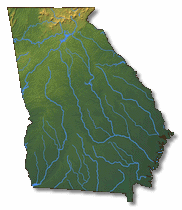
Pipelines in Georgia may include transmission lines carrying energy products long distances, as well as distribution lines delivering natural gas to businesses and households in your neighborhood. The energy products carried in pipelines fuel our lives and our livelihoods. They heat our homes and schools, power our industrial base and enable our daily commutes.
Pipelines are by far the safest method for transporting energy products. However, when pipeline incidents occur they can present significant risks to the public and the environment. That's why PHMSA encourages everyone in Georgia to learn about pipelines and the products they carry, as well as a few simple steps you can take to help ensure pipeline safety in your community.
Georgia pipeline profile: incident trends
Georgia pipeline profile: mileage and facilities
Georgia pipeline profile: enforcement data
Pipeline Safety Program Performance Metrics
Call Before You Dig!
Before you begin an excavation or demolition, before you begin digging, you must call to have underground facilities located to avoid damage. Call before you dig, it’s required by law. Dial 811 to contact the one-call center. The call is free and there is no cost to you for the service. Remember, Call 811 before you dig.
Georgia damage prevention information
Who operates pipelines in your area?
PHMSA’s National Pipeline Mapping System (NPMS) enables you to identify pipelines in your area. But remember, NPMS data is for information only and should never be used as a substitute for calling before digging. Call 811 before you dig.
Who regulates pipelines in Georgia?
PHMSA’s Office of Pipeline Safety (OPS) and Georgia partner in pipeline safety regulatory responsibilities.
The role of the states in pipeline safety
The National Association of Pipeline Safety Representatives (NAPSR) is a nonprofit organization of state pipeline safety personnel who serve to promote pipeline safety in the United States and its territories. Under PHMSA certification and agreements, NAPSR members support the safe delivery of pipeline products by conducting inspections of pipeline operators to determine compliance with applicable state and federal pipeline safety requirements.
Your PHMSA point-of-contact
PHMSA Community Liaisons (formerly Community Assistance and Technical Services Managers) are located in each PHMSA Region and can assist if you have questions or concerns about pipeline safety.
Georgia official State website
Georgia Utilities Coordinating Council
The GUCC promotes pipeline damage prevention through a variety of programs and working committees. In addition, is is a regional partner of the Common Ground Alliance, working to promote best practices in damage prevention.
Pipeline news in Georgia
Keyword search for pipeline news in Georgia at these and other newspapers:
